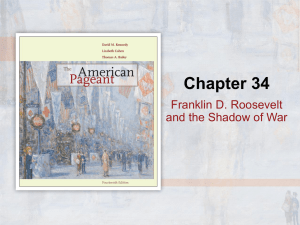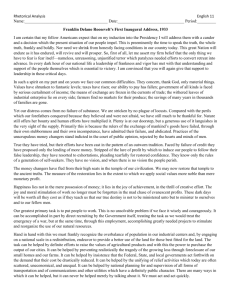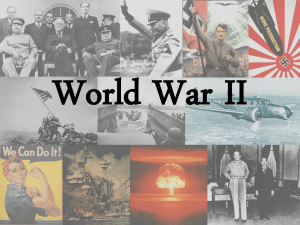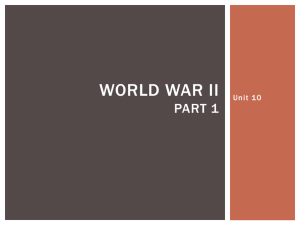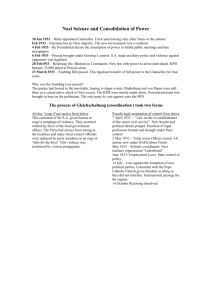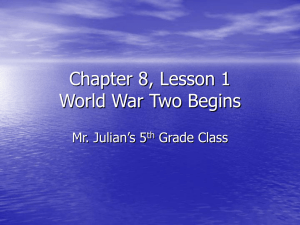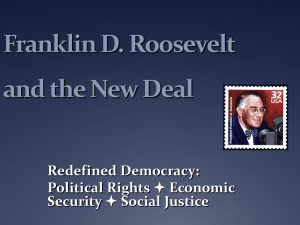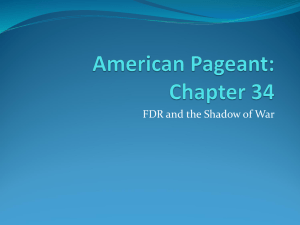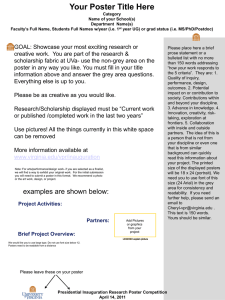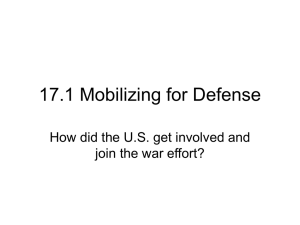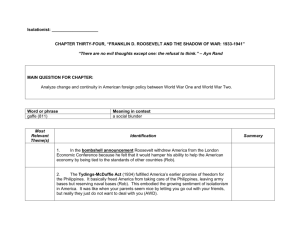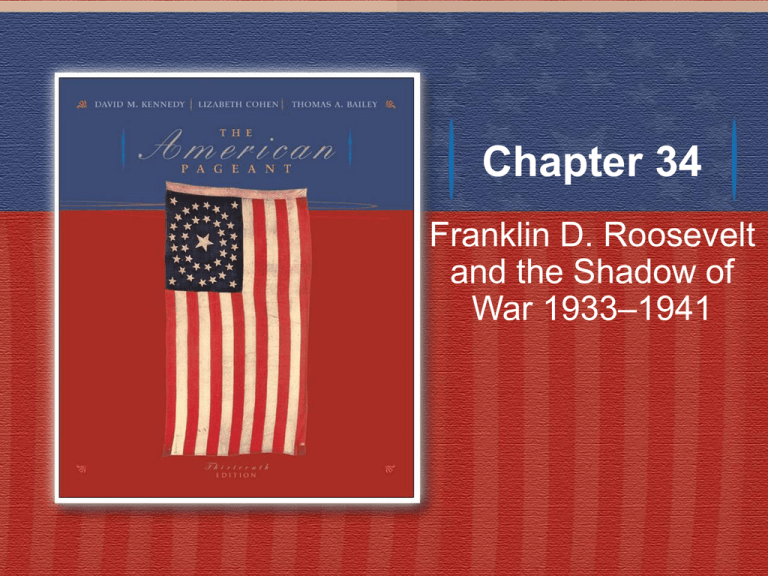
Chapter 34
Franklin D. Roosevelt
and the Shadow of
War 1933–1941
Just Another Customer, 1933
The United States recognizes the
Soviet Union.
Dallas Morning News
The Wages of Despair
Disillusioned and desperate, millions of
Germans in the 1930s looked to Adolf
Hitler as their savior from the harsh
terms of the Treaty of Versailles, which
had concluded World War I. This Nazi
poster reads, “Our Last Hope: Hitler.”
Poster Collection, Hoover Institution Archives
“The Only Way We Can Save
Her,” 1939
Even as war broke out in Europe, many
Americans continued to insist on the
morality of U.S. neutrality.
The Granger Collection
What Next? 1938
The Western European democracies
looked on helplessly as Nazi Germany
swallowed up Austria and part of
Czechoslovakia in 1938, and Hitler’s
juggernaut seemed unstoppable.
St. Louis Dispatch
Nazi Anti-Semitism
This widely distributed German poster
attacks “The Jew--Purveyor of War,
Prolonger of War.”
Library of Congress
Albert Einstein Arriving in America, 1933
Sadly, the United States admitted only a trickle of refugees from Nazism, while some
6 million European Jews died.
Library of Congress
Hannah Arendt, 1933
A brilliant political theorist, Arendt fled
the Nazis and continued her career in
the United States.
AP/ Wide World Photos
Pro-British Propaganda
This patriotic poster was put out by the
Committee to Defend America by Aiding
the Allies.
Imperial War Museum
A Campaign Poster from the Election of 1940
Roosevelt emerged as the only president ever to break the two-term tradition.
FDR Library
Presidential Election of 1940 (with electoral vote by state)
Willkie referred to Roosevelt only as “the third-term candidate.” On election eve FDR
hinted that communists and fascists were among Willkie’s supporters. Despite these
campaign conflicts, the two men respected each other. FDR later asked Willkie to
serve as his emissary abroad and even suggested that they run together on a
coalition ticket in 1944.
Copyright (c) Houghton Mifflin Company. All Rights Reserved.
No to Lend-Lease
Members of the Massachusetts Woman’s Political Club presented President
Roosevelt with a petition protesting adoption of the Lend-Lease Bill and picketed the
White House. They feared that America’s increasing involvement with the Allied cause
would eventually draw their sons into battle--as it did, despite the president’s
assurances to the contrary.
Brown Brothers
Main Flow of Lend-Lease Aid (width of arrows indicates relative
amount)
The proud but desperate British prime minister, Winston Churchill, declared in early
1941, “Give us the tools and we will finish the job.” Lend-lease eventually provided the
British and other Allies with $50 billion worth of “tools.”
Copyright (c) Houghton Mifflin Company. All Rights Reserved.
Unexpected Guest, 1941
Stalin joins the democracies, Britain
and America.
Detroit News

